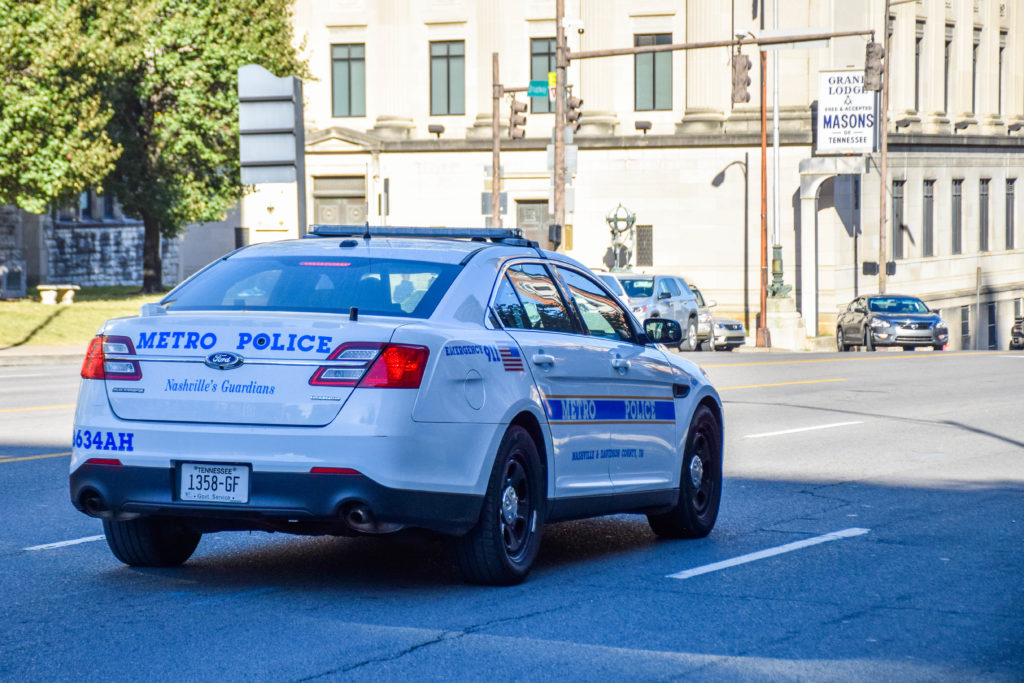
The interstate was filled law enforcement last Thursday when nine officers from different agencies shot and killed Landon Eastep. Many in Nashville are wondering why no mental health counselors were there to calm things down.
Now, Nashville plans to expand a program that pairs officers with mental health clinicians. But it’s unclear if counselors would have even been able to respond in that situation or others that have ended in gunfire.
The program, called Partners in Care, started at the North and Hermitage precincts last June. It is being tracked by the Metro Public Health Department.
Amy Woerner is one of the social workers who responds to calls. When she pulls up to the scene, she starts by telling people she’s there to help.
“You’re not in any trouble,” Woerner says she tells them. “I know police are here, but you’re not in any trouble. We just want to figure out what’s going on to see if we can get you some help.”
Woerner is a licensed clinician with the Mental Health Cooperative. She’s spent the past several months riding around with police in the Hermitage Precinct, being paired with officers. The idea is for police to have an expert on hand if someone needs mental healthcare.
At a meeting with mayor’s office Thursday, in which officials shared data from the second quarter of the pilot program, Officer Donovan Coble said that police are normally playing catch-up when someone is in crisis. If they want a clinician, they have to wait for one to come. All the while, the person they’re trying to help could be getting more agitated.
“With Amy out on the street with us, it prevents that from happening,” he said. “That huge time gap that we usually see doesn’t happen, and that’s been extremely helpful.”
Officer Gabriel Centeno added that it gives officers an extra option, instead of giving someone a warning or arresting them when what they really need is services. Plus, he said, the presence of a counselor can put people at ease.
“Showing up with somebody, also, that’s not in a police uniform does help,” Centeno said. “People have all types of different interactions with police officers.”
Positive results, but limited power
When the conversation turns from law enforcement to mental health, he said, people tend to open up.
So far, the team has responded to about 800 calls, out of the hundreds of thousands routed to dispatchers in a given year. About 4% of those calls resulted in an arrest in the program’s first two quarters. Most of the time, someone was either taken to the hospital, referred to community resources or talked down until they felt better.
But it’s a small pilot program, with just six clinicians. Counselors probably wouldn’t have even been there to de-escalate in the recent cases when officers shot someone.
Inspector David Imhof says clinicians can help with mental health decisions, but police are supposed to take the lead until they think the situation is safe.
“They’re your partners, but they’re not your partners,” Imhof said as he explained the precautions the police department and Mental Health Cooperative take to protect counselors from harm. “They’re not your partner on a traffic stop. If we’re going to a house that we have to clear, they are not to get out of the car. They are not our partners in that regard.”
The mental health professionals also go through situational awareness training, wear ballistic vests under their Mental Health Cooperative uniforms and are issued police radios, in case they need to call for backup.
The police department says it wants to eventually train all its officers in crisis response, so they’ll have more tools to use even when they are not paired with a counselor. Imhof hopes 550 supervisors and officers will have gone through the training in the next three years.
The city is also planning to expand its mental health crisis response — first with two more Partners in Care teams. The mayor’s office says the goal is to launch one in May in Central Precinct, where dispatchers receive a large amount of calls related to mental health and substance use, and then another in either the South or Midtown Hills Precinct this summer.
Officials are also thinking about creating a unit that would send clinicians without police to some calls. The mayor’s office is hoping to get federal funding to explore non-law enforcement options.

